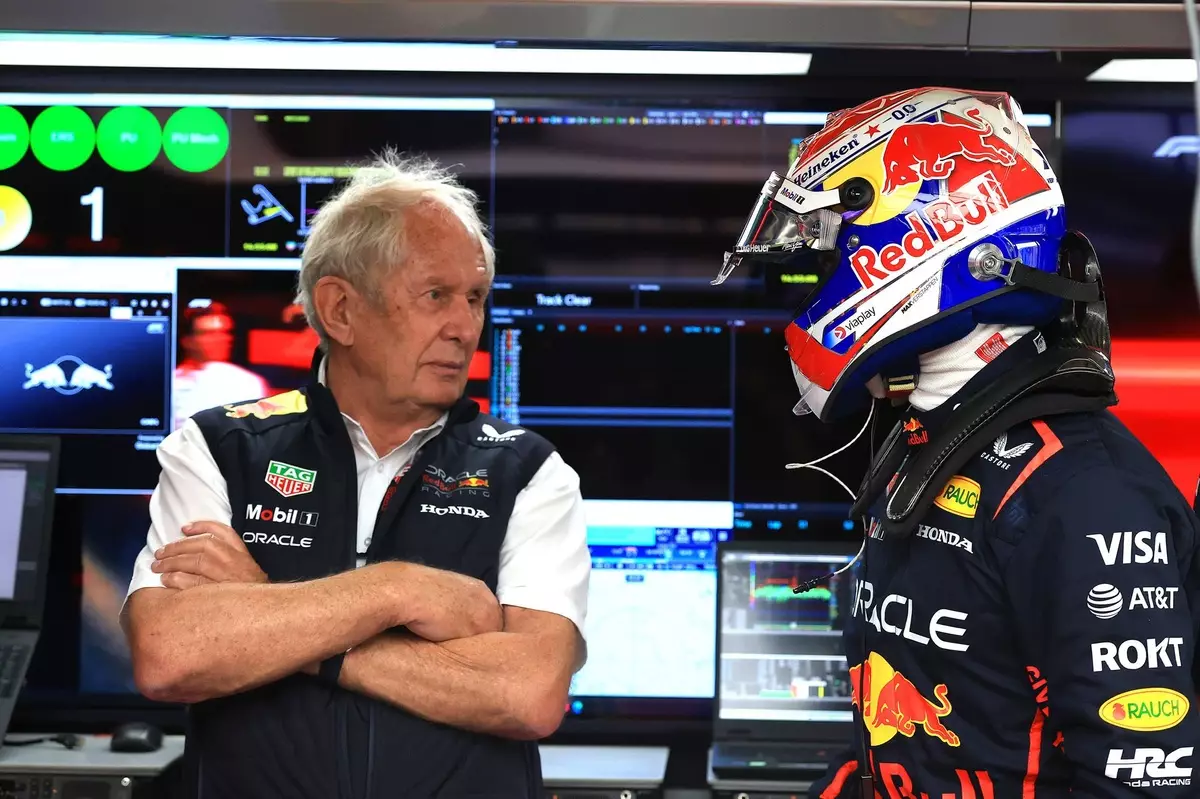Formula 1 is often praised for its high-octane drama, but the recent Spanish Grand Prix provided a display of turmoil that encompassed both racing skill and the fragility of emotional composure. At the heart of this cacophony was Red Bull’s Max Verstappen, whose decisions on the track transformed a potentially triumphant outing into a turbulent narrative of frustration and controversy. With veteran advisor Helmut Marko articulating his bewilderment over Verstappen’s choices during these decisive moments, it’s essential to delve deeper into the psychology of racing and the implications of emotional intelligence on performance.
The Safety Car: A Double-Edged Sword
A pivotal moment in the race came during the safety car restart on lap 61. The strategic use of the safety car is often double-edged; it can offer drivers a chance to reset, but equally presents high-stakes pressure. Verstappen’s miscalculation, which resulted in losing third place to Charles Leclerc, not only ignited his frustrations but also served as a catalyst for subsequent incidents. Marko’s observations reflect a deeper truth: a driver’s awareness and adaptability are just as critical as their technical skills. Understanding how pressure affects decision-making can illuminate why Verstappen struggled to maintain his composure during such intense circumstances.
The Incident: Where Emotions Clash with Regulations
As tensions escalated, Verstappen found himself embroiled in a contentious exchange with George Russell. The on-track collision that ensued wasn’t merely a product of racing inexperience, but rather a striking depiction of how emotions can lead even seasoned competitors astray. Marko’s point that both drivers were equally culpable—the concept of ’50-50’—raises questions about accountability in racing. When a driver loses their emotional footing, how much of that slips into reckless behavior? Verstappen notably failed to adhere to the regulations governing contact on track, leading to a self-inflicted penalty that could have jeopardized his season.
Punishment and Consequences: The Harsh Reality of Racing
The aftermath of Verstappen’s clashes didn’t merely result in points lost; it also brought forth tangible penalties that could drastically alter the championship landscape. Receiving a ten-second penalty and three penalty points is a sobering reminder of the stakes involved in Formula 1. For a driver like Verstappen, who operates at the pinnacle of the sport, every decision carries the weight of expectation, not just from fans but from the entire team. Marko’s assertion that Verstappen’s emotional state was a decisive factor mirrors the reality that racing proficiency and mental resilience are tightly interwoven in F1.
Reflection and Apology: A Rare Acknowledgment
In an unexpected twist of humility, Verstappen took to social media to address his unsportsmanlike behavior, an admission that’s not typical for a driver known for his fierce competitive spirit. This public expression of regret can be viewed as a crucial step—not only in repairing his image but also in recognizing the importance of self-awareness in achieving excellence. It’s a reminder that the path to greatness is often littered with missteps, but how one responds to these challenges defines character.
The Road Ahead: Learning from Turmoil
For Red Bull and Verstappen, the aftermath of the Spanish Grand Prix serves as both a cautionary tale and an opportunity for growth. Moving forward, the team must focus on developing coping mechanisms for high-pressure situations to ensure that emotional bandwidth does not erode performance. Marko’s reluctance to engage in a lengthy debriefing due to Verstappen’s heightened state reflects a need for emotional stability within the team—a necessity that cannot be overlooked in the relentless pursuit of victory.
In a sport defined by precision and strategy, the true champions will ultimately be those who can navigate not only the complexities of the racetrack but also the intricate landscape of human emotion. With the upcoming races on the horizon, one can only hope that Verstappen emerges from these turbulent waters not only as a formidable competitor but as a reflective leader, capable of turning adversity into a catalyst for future triumph.


Leave a Reply